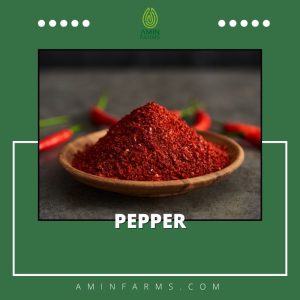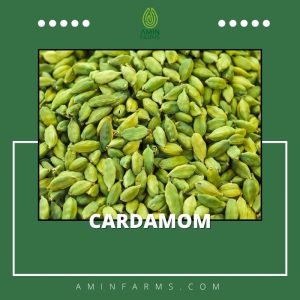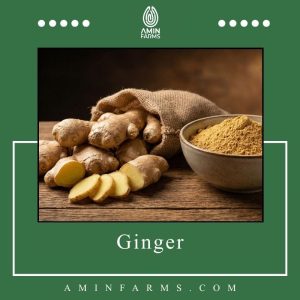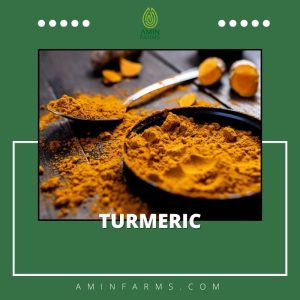Cinnamon
Cinnamon is a premium aromatic spice known for its warm and rich flavor. Its unique flavor blends natural sweetness with a gentle, exciting spiciness and make it suitable for use in cooking. Cinnamon makes an incredibly delicious and flavorful tea and has an essential place in sweets and desserts.
Sweet Spice Saga: All About Cinnamon
Cinnamon is one of the oldest and most widely used spices in the world, and it has a special place in both cooking and traditional medicine. This fragrant, flavorful spice is derived from the bark of the cinnamon tree and has been used for centuries as a natural seasoning and medicine in various cultures.
The cinnamon tree, scientifically known as Cinnamomum, is native to tropical regions such as Sri Lanka, Indonesia, India, and China and belongs to the family Lauraceae. This evergreen tree has yellowish-white flowers, and its brown bark is the valuable and fragrant part known as the spice. Among cinnamon varieties, the Ceylon variety, grown in Sri Lanka, is considered one of the highest-quality and most aromatic.
Cinnamon has an important place not only in the cooking and confectionery industries, but also in traditional medicine and herbal remedies. The bark extract of this tree has been used for hundreds of years to treat digestive problems, boost the immune system, and improve blood circulation. In addition to adding a delightful touch to foods and desserts, cinnamon’s warm aroma and sweet flavor have positive effects on overall health. They are considered one of the most potent medicinal herbs. Overall, cinnamon is a versatile spice that not only adds a pleasant flavor to foods but also helps improve health and boost vitality — a combination of pleasure, aroma, and healing in one small but excellent stick.
Ceylon vs. Cassia: The Key Differences
There are two main types of cinnamon on the market: Ceylon cinnamon and Cassia cinnamon. Both are obtained from the inner bark of the cinnamon tree, but they differ in color, flavor, texture, and properties.
Ceylon Cinnamon
Ceylon cinnamon, also known as true cinnamon, is obtained from the Cinnamomum verum tree, native to Sri Lanka and southern India. It is yellowish-brown, soft and smooth, and has a sweet, mild flavor. Ceylon contains much less coumarin, making it safer for daily and long-term use. This type is rarer, more expensive, and of higher quality, and is used more in supplements and medicinal products.
Cassia Cinnamon
Cassia cinnamon, or Chinese cinnamon, is obtained from the Cinnamomum cassia tree, which is native to China and Indonesia. It is darker in color, thicker in texture, and pungent in flavor. Cassia is more common and cheaper than Ceylon, but it has more coumarin and can be harmful to the liver if consumed in large amounts. Both types are rich in the active compound cinnamaldehyde and are thought to improve blood sugar and heart health, as well as boost the immune system. However, Ceylon cinnamon is better suited for regular and medicinal use.
Proven Health Perks of Cinnamon
Numerous scientific studies have confirmed the wide range of benefits of cinnamon. This fragrant and versatile spice is rich in antioxidants and has anti-inflammatory effects. Its active compounds can reduce the risk of heart disease by lowering bad cholesterol (LDL) and increasing good cholesterol (HDL).
Cinnamon also helps regulate blood sugar levels and reduces the risk of type 2 diabetes by improving insulin sensitivity in cells. In addition, regular consumption of cinnamon can increase concentration and improve brain function.
Other properties of cinnamon include strengthening the immune system, improving digestion, and reducing bloating and muscle pain. This spice also has antibacterial and antiseptic properties and can be effective in treating skin problems such as acne and eczema.
Consuming a small amount of cinnamon daily — even as little as half a teaspoon — can have positive effects on the body’s overall health. In higher doses (under the supervision of a doctor or nutritionist), this spice is known to be effective in reducing the risk of heart disease, diabetes, and even some neurological diseases and nerve cell destruction.
Blood Sugar and Heart Support
Scientific studies have shown that moderate cinnamon consumption has significant effects on cardiovascular health. This spice helps regulate the body’s metabolism by improving insulin sensitivity and lowering blood sugar levels in patients with diabetes.
Cinnamon is rich in anti-inflammatory and antioxidant compounds that improve blood flow, lower blood pressure, and help prevent arterial damage. For this reason, it is referred to as a heart-friendly spice.
Cinnamon powder helps heart health in several ways:
- Reduces bad cholesterol (LDL) and triglycerides
- Increases good cholesterol (HDL)
- Reduces inflammation in the walls of blood vessels
- Reduces blood pressure by dilating peripheral arteries
According to research, regular consumption of cinnamon can reduce the risk of heart disease by up to 30%. Contrary to popular belief, cinnamon is not harmful to people with high blood pressure; rather, it can help regulate blood pressure and improve circulation.
Cinnamon in Diverse Global Dishes
Cinnamon is one of the most widely used spices in cooking worldwide, and when combined with various flavors, it adds warmth and a pleasant aroma to foods and desserts. From Middle Eastern sweets and desserts to Asian dishes and European drinks, cinnamon is a common ingredient in cuisines worldwide.
In Iran, cinnamon plays an essential role in preparing stews and sweets such as shale zard, samno, qutab, and haleem. It is usually used in confectionery as a powder, essence, or extract. In India, cinnamon is used in masala tea, curries, and other dishes. In Arab countries, cinnamon is used to flavor coffee and herbal teas, and in America and Europe, it is a main ingredient in apple pie, cinnamon rolls, and hot winter drinks.
Cinnamon pairs well with many foods:
- Fruits: such as apples, pears, bananas, and peaches
- Drinks: tea, coffee, hot milk, and hot chocolate
- Desserts and sweets: cakes, baklava, cookies, and fruit salad dressings
For a special flavor, mix a little cinnamon powder with honey and lemon juice, then use it as a natural dressing for fruit salad or as a dessert topping.
Sourcing Authentic Cinnamon Products
Not all cinnamon is the same, and it’s essential to know which kind to use. To tell Ceylon cinnamon from Cassia cinnamon, look for its color, texture, and aroma. Ceylon cinnamon is light brown, has thin, twisted layers, and a delicate, sweet scent, while Cassia cinnamon is darker, thicker, and pungent.
One of the main differences between the two types is the amount of coumarin. Cassia cinnamon has much higher levels of this compound, and can be harmful to the liver if consumed in large amounts. For this reason, if you plan to consume cinnamon daily or in dietary supplements, Ceylon cinnamon is a safer and healthier option.
Unfortunately, most of the cinnamon you find in supermarkets is the Cassia variety, as it is cheaper and more abundant. To buy high-quality cinnamon, it is best to buy from reputable sellers or trusted apothecaries and, if possible, choose organic products without additives.
Future Cinnamon Trends in 2025
In 2025, cinnamon has become more than just a traditional spice; it is now a key ingredient across various industries. Its global market is growing significantly, and demand for natural and organic products, especially Ceylon cinnamon, has increased.
Cinnamon is used in the pharmaceutical and dietary supplement industries to control blood sugar, boost the immune system, and improve brain function, and is used in cosmetics and health products for its anti-inflammatory and antibacterial properties. Cinnamon flavor has also become popular in desserts, chocolates, and flavored butters.
Despite the market growth, climate change and supply chain fluctuations have created challenges for manufacturers. However, trends indicate that cinnamon will play an essential role in food, health, and natural products in the coming years, and its popularity continues to grow.
Safe Usage and Potential Side Effects
Despite the many benefits of cinnamon, excessive consumption—especially the cassia variety—can cause liver damage, stomach irritation, and digestive problems. Side effects of high consumption include constipation, skin rashes, and worsening liver problems, such as fatty liver and an increased risk of cirrhosis.
The recommended daily intake of cinnamon is about half to one teaspoon. Pregnant women and those taking blood-thinning medications should consult a doctor before consuming more.
Ceylon cinnamon, with lower coumarin levels than cassia, is considered a safer option for daily, long-term use.
Shipping Options
- International Shipping to all countries via reliable sea, air, and land freight.
- Bulk shipments available in full containers with or without pallets.
All depends on customer requirements.
Delivery Time
We provide the most efficient transit and lead times based on the destination and shipping method.
Packaging Options
All products are supplied in export-grade packaging to ensure quality and freshness during transit.
Custom packaging and private labeling are available upon request.
Minimum Order Quantity (MOQ)
Our minimum order quantity for all bulk products is one full container load.










Reviews
There are no reviews yet.